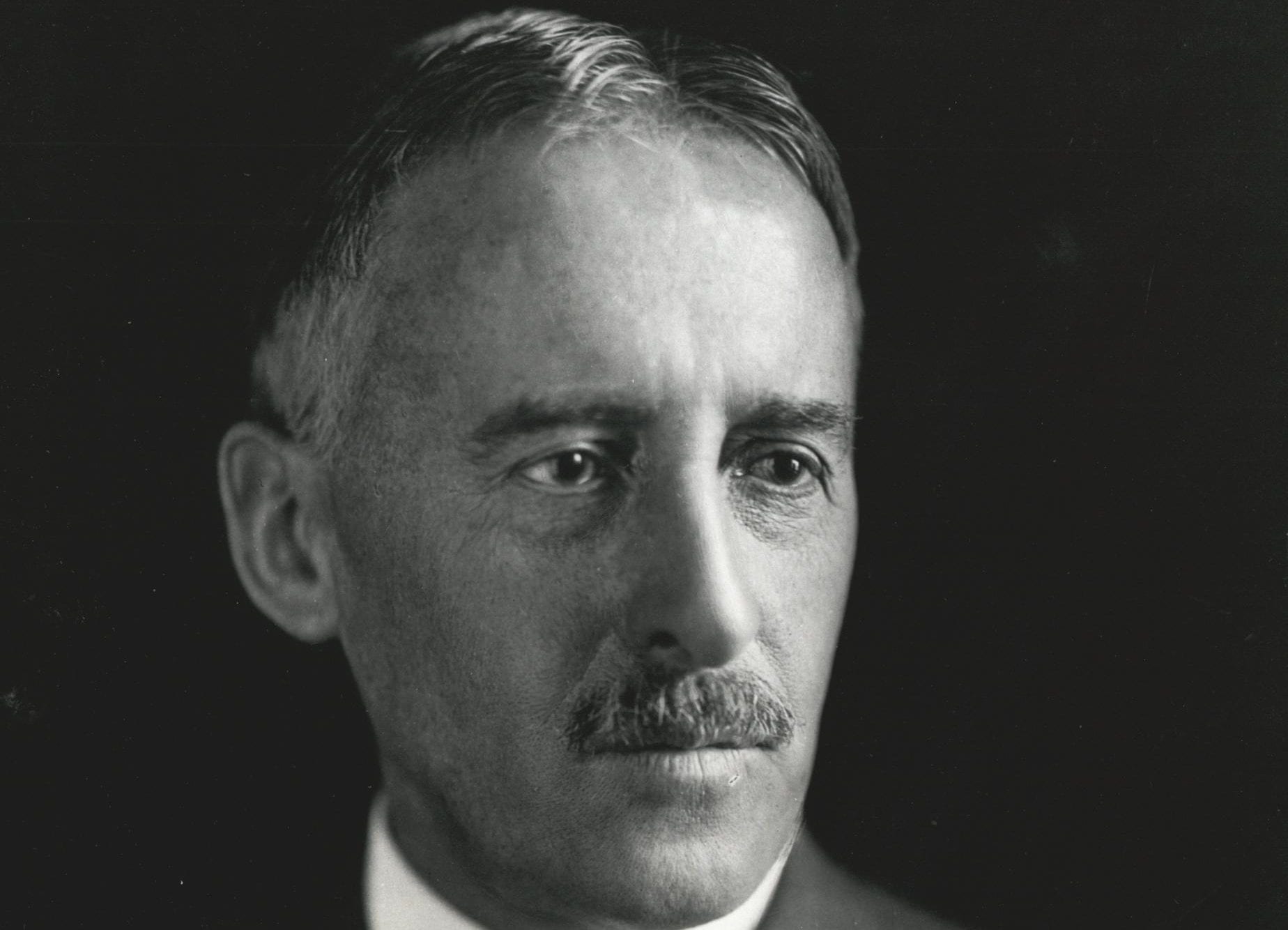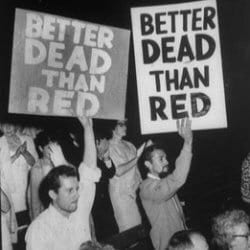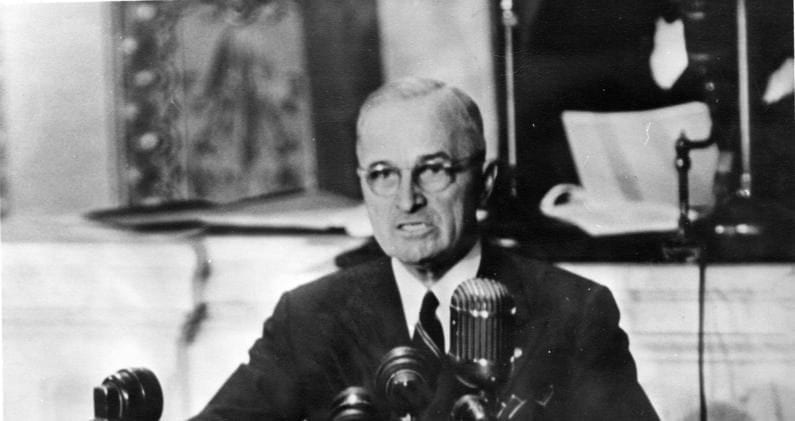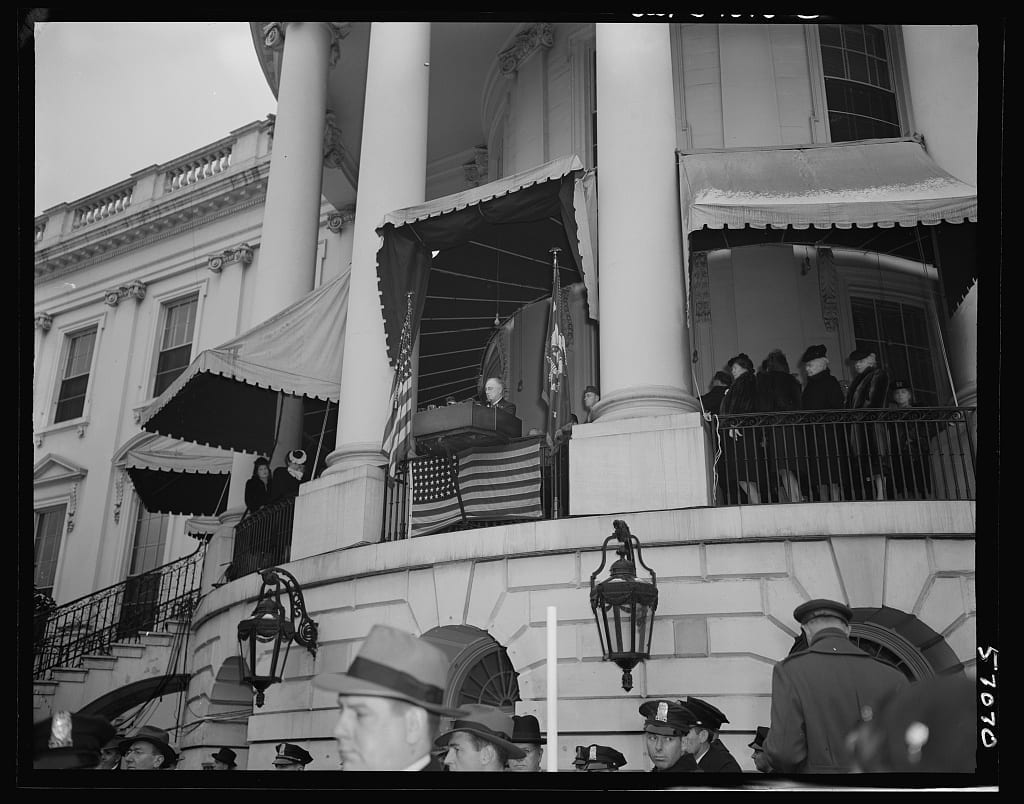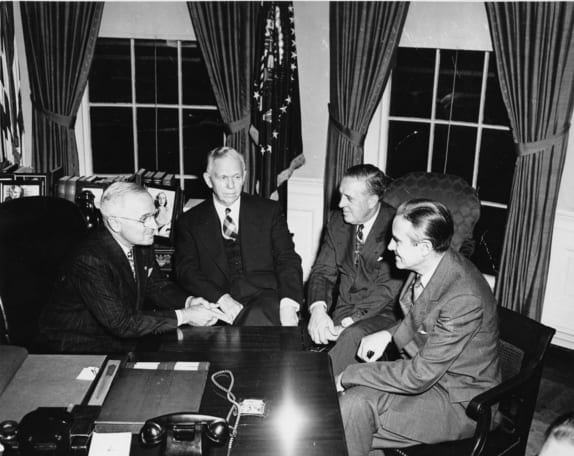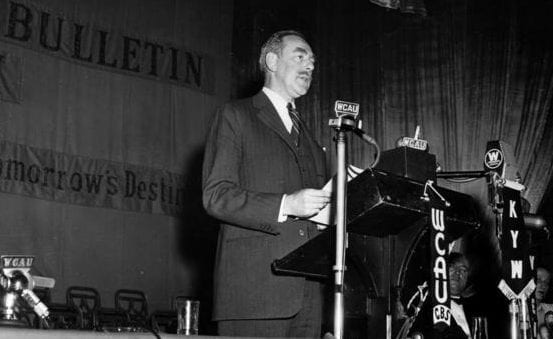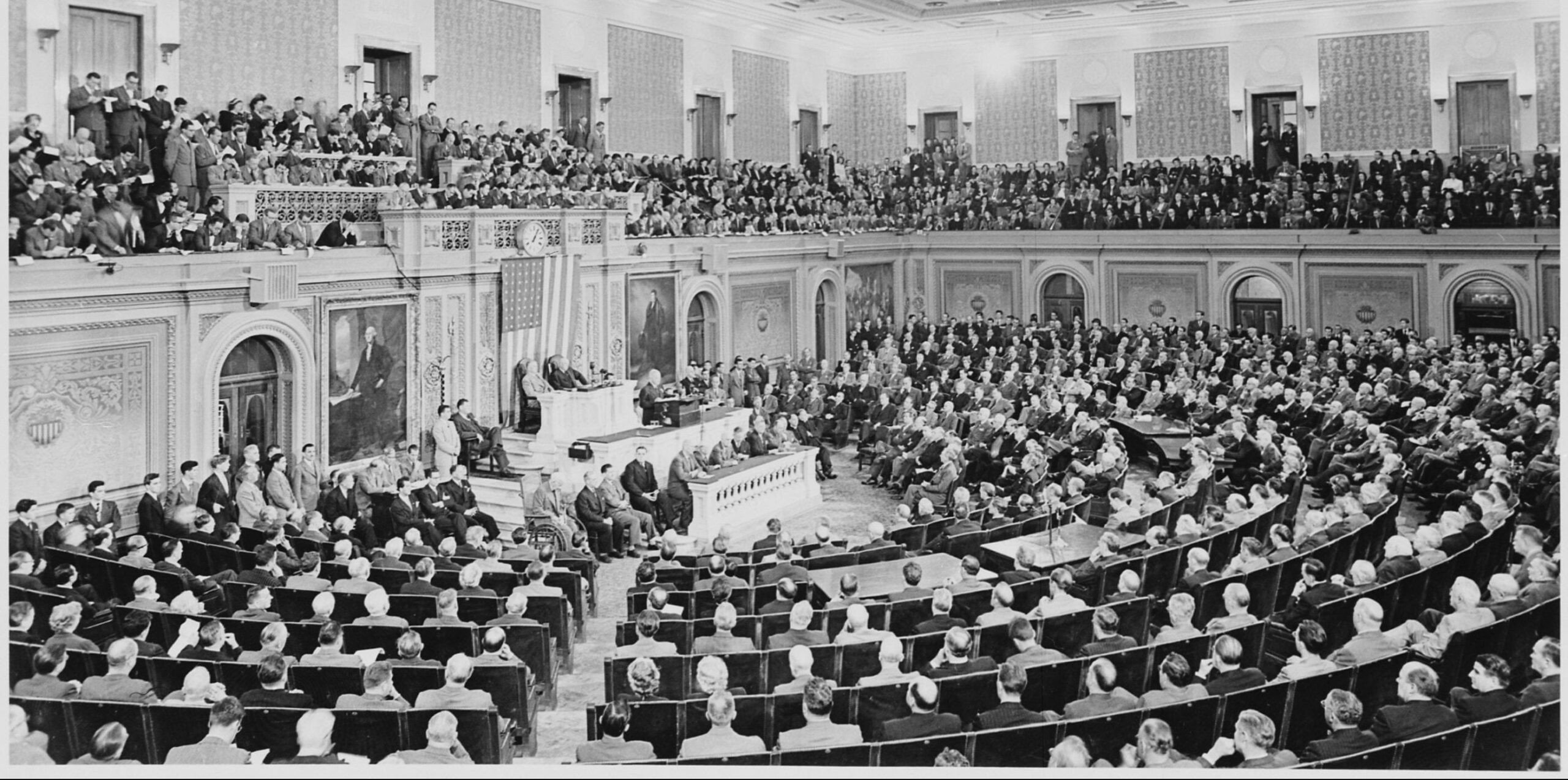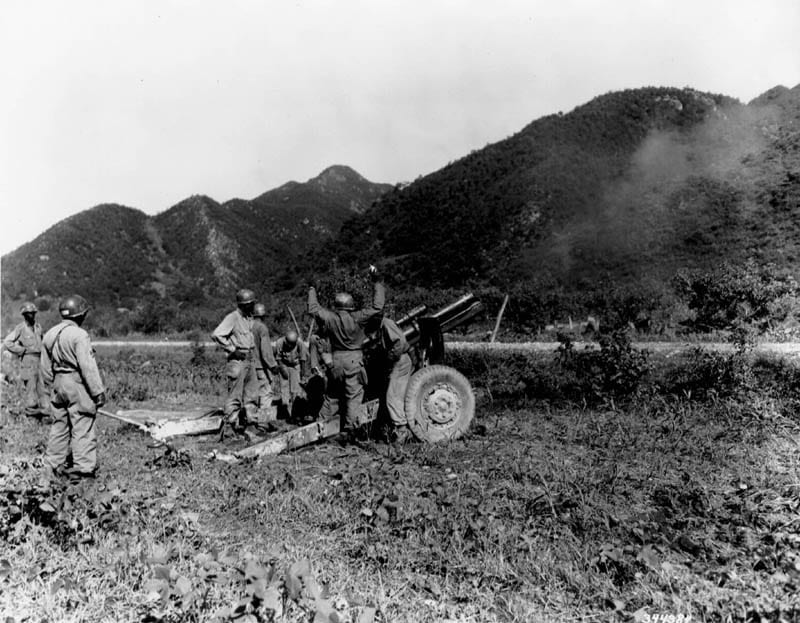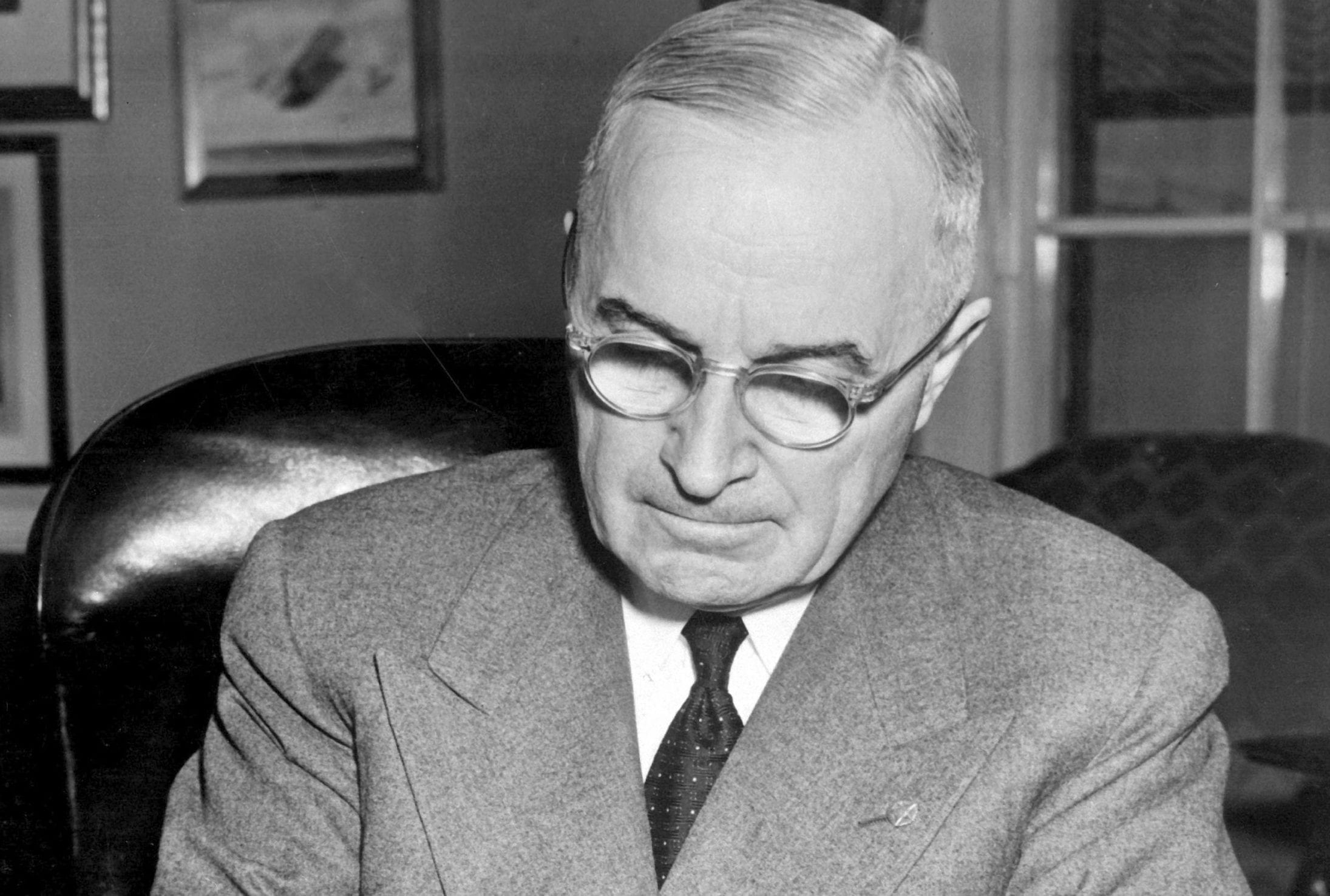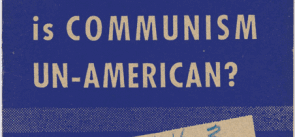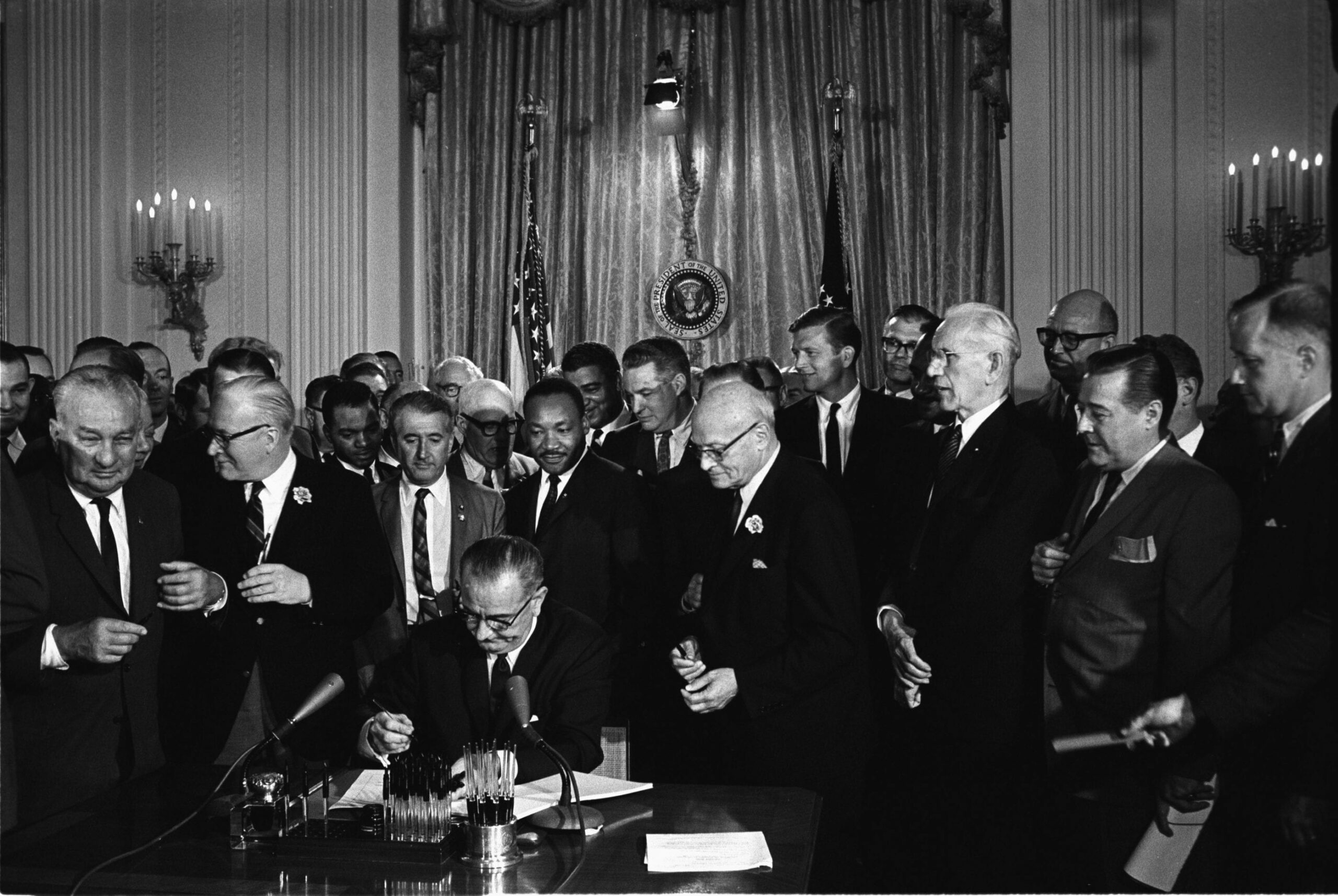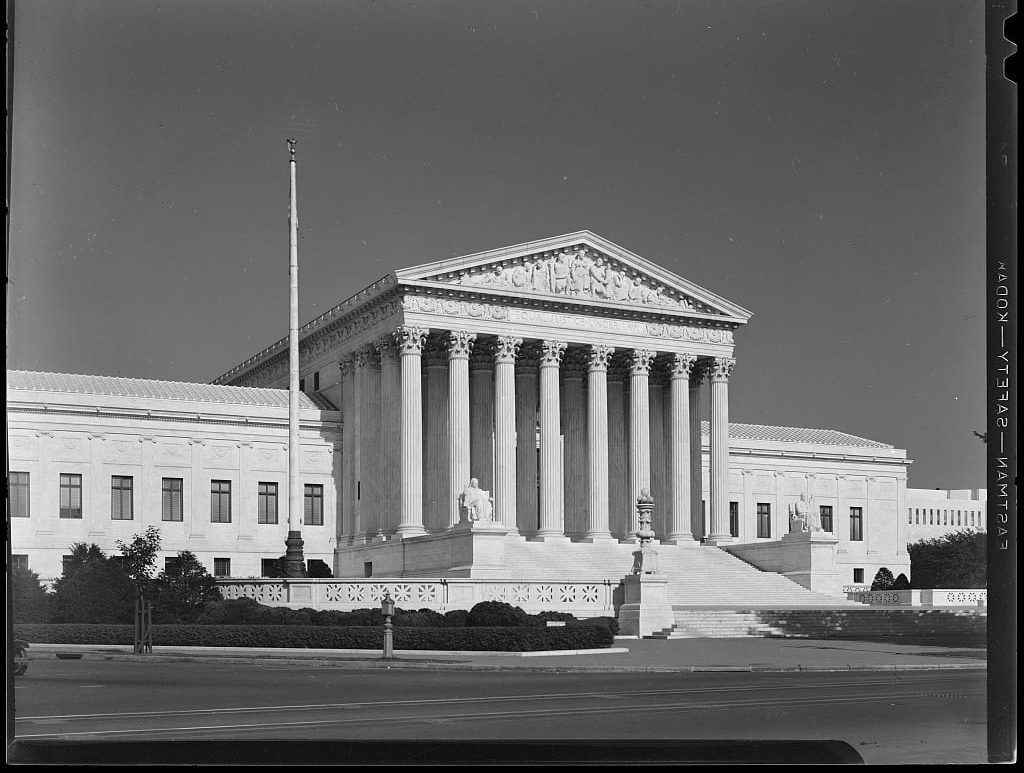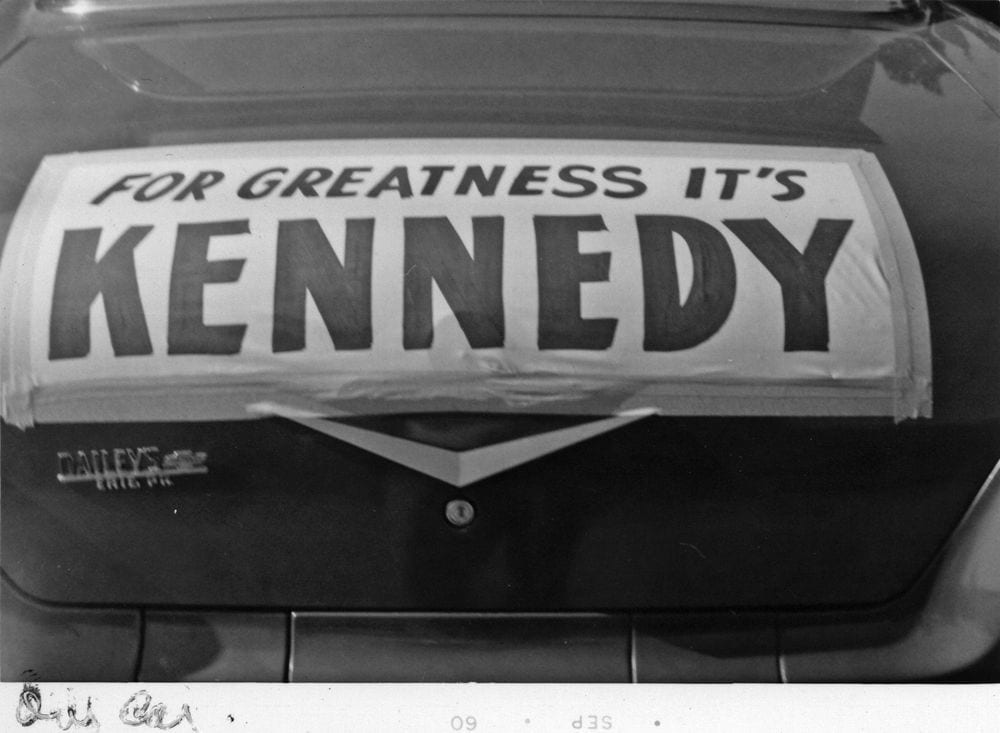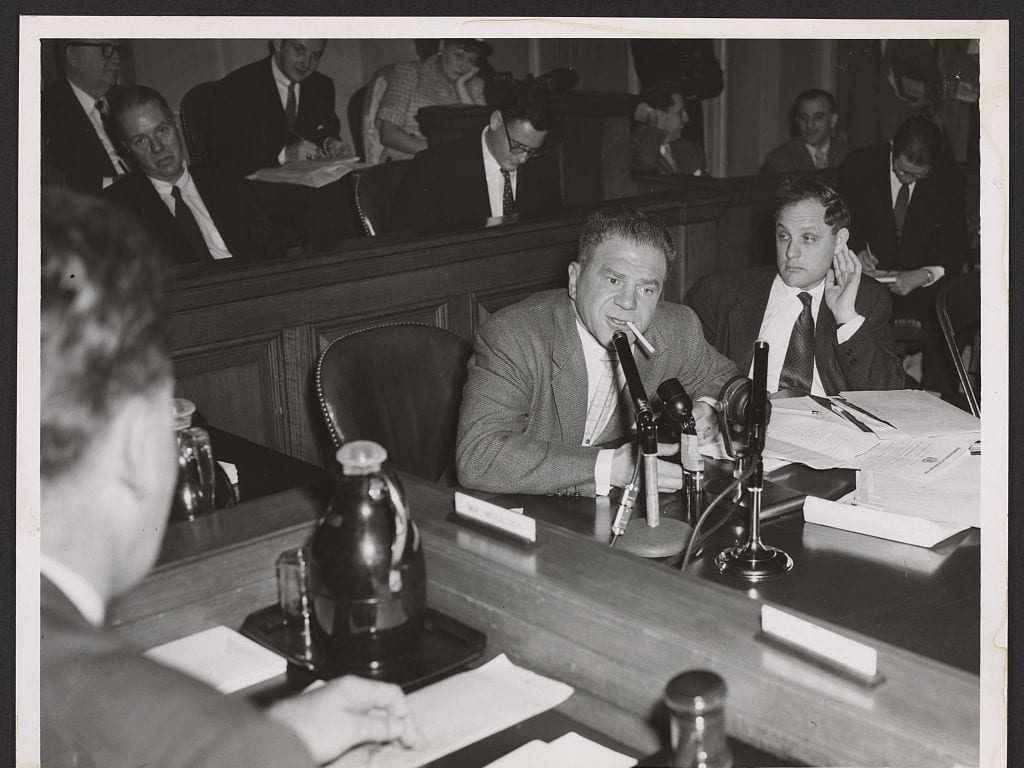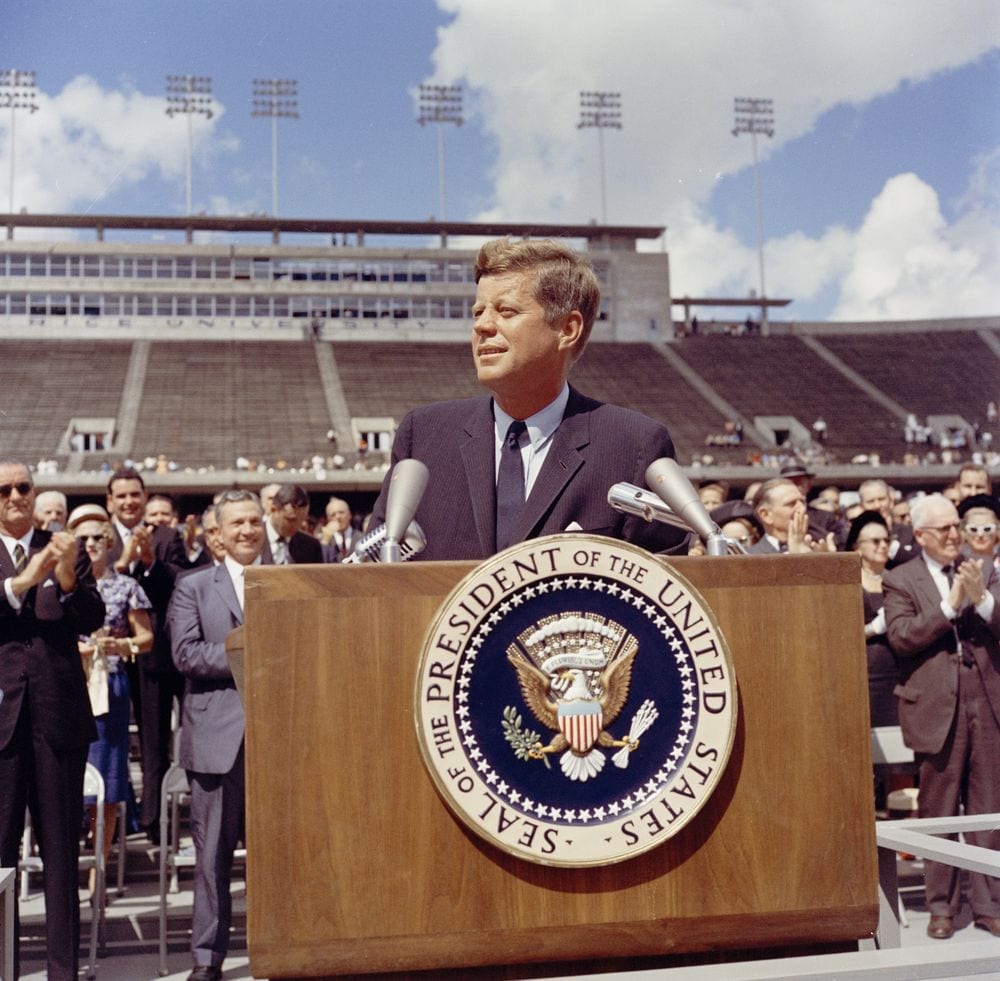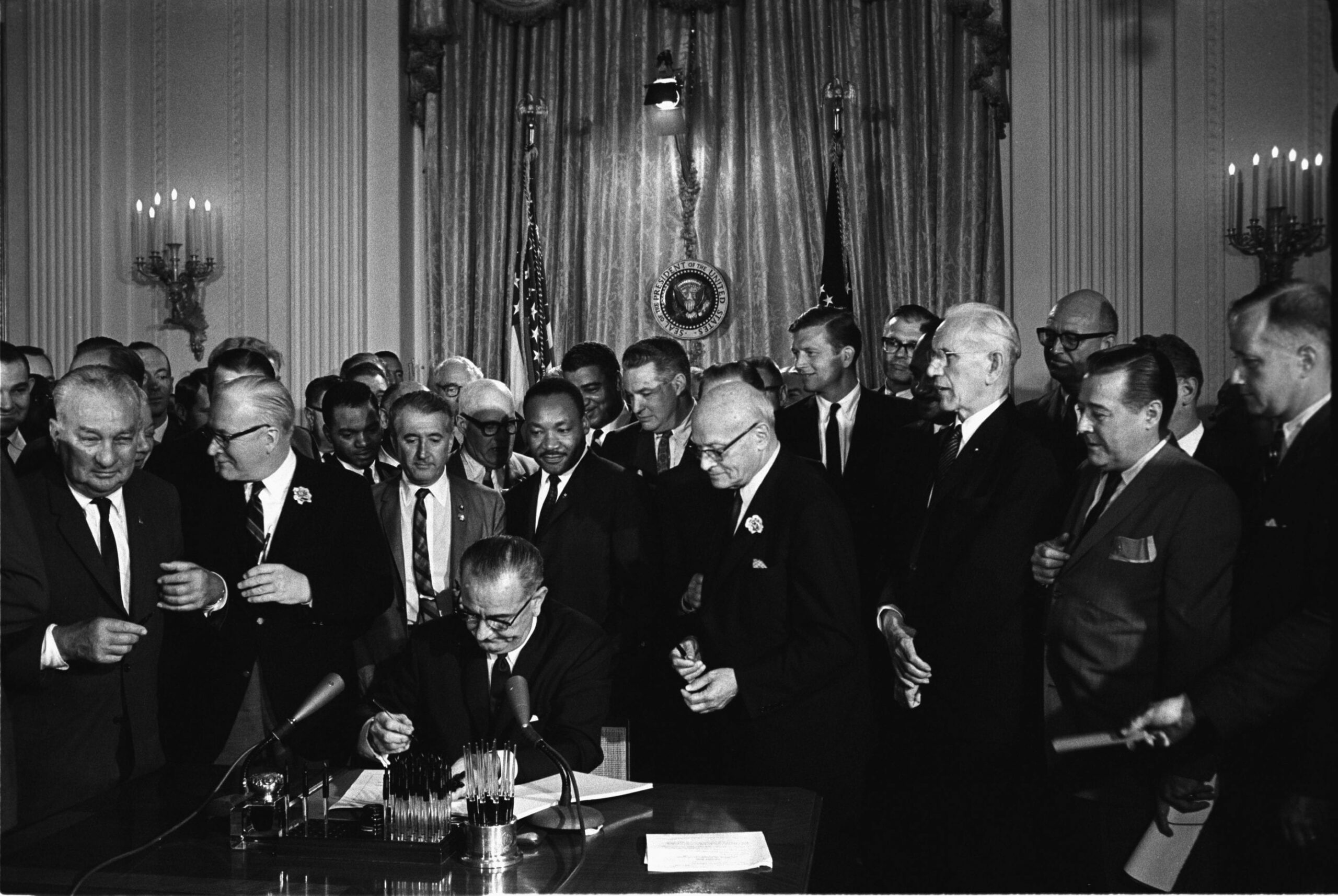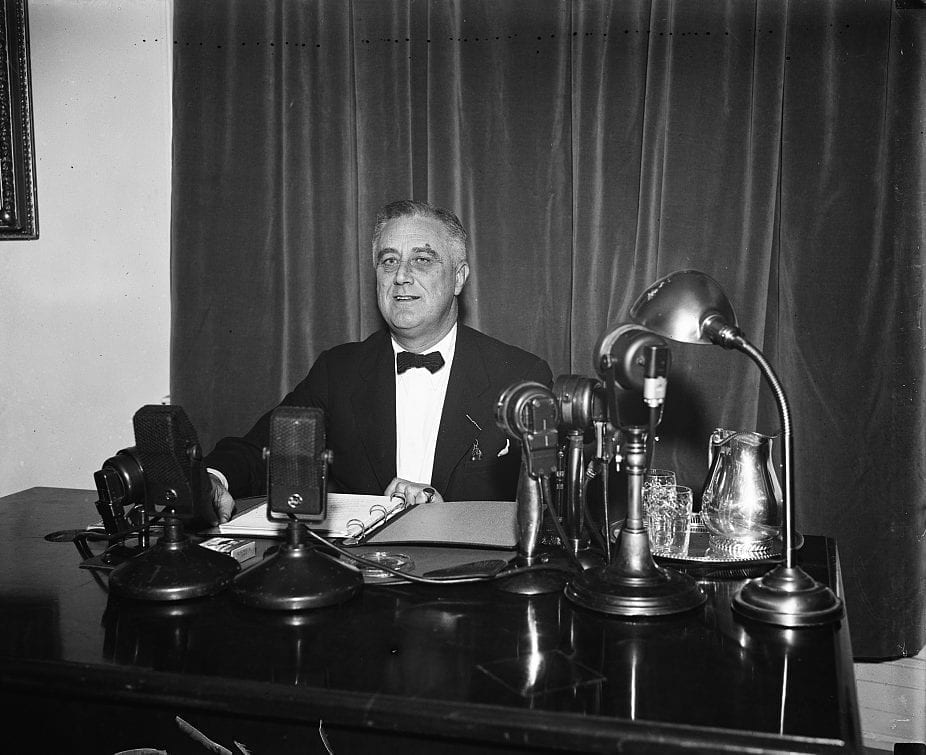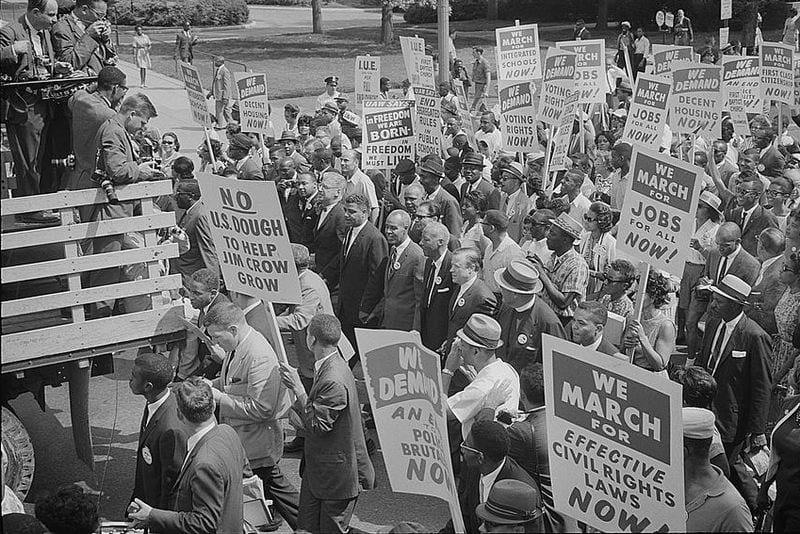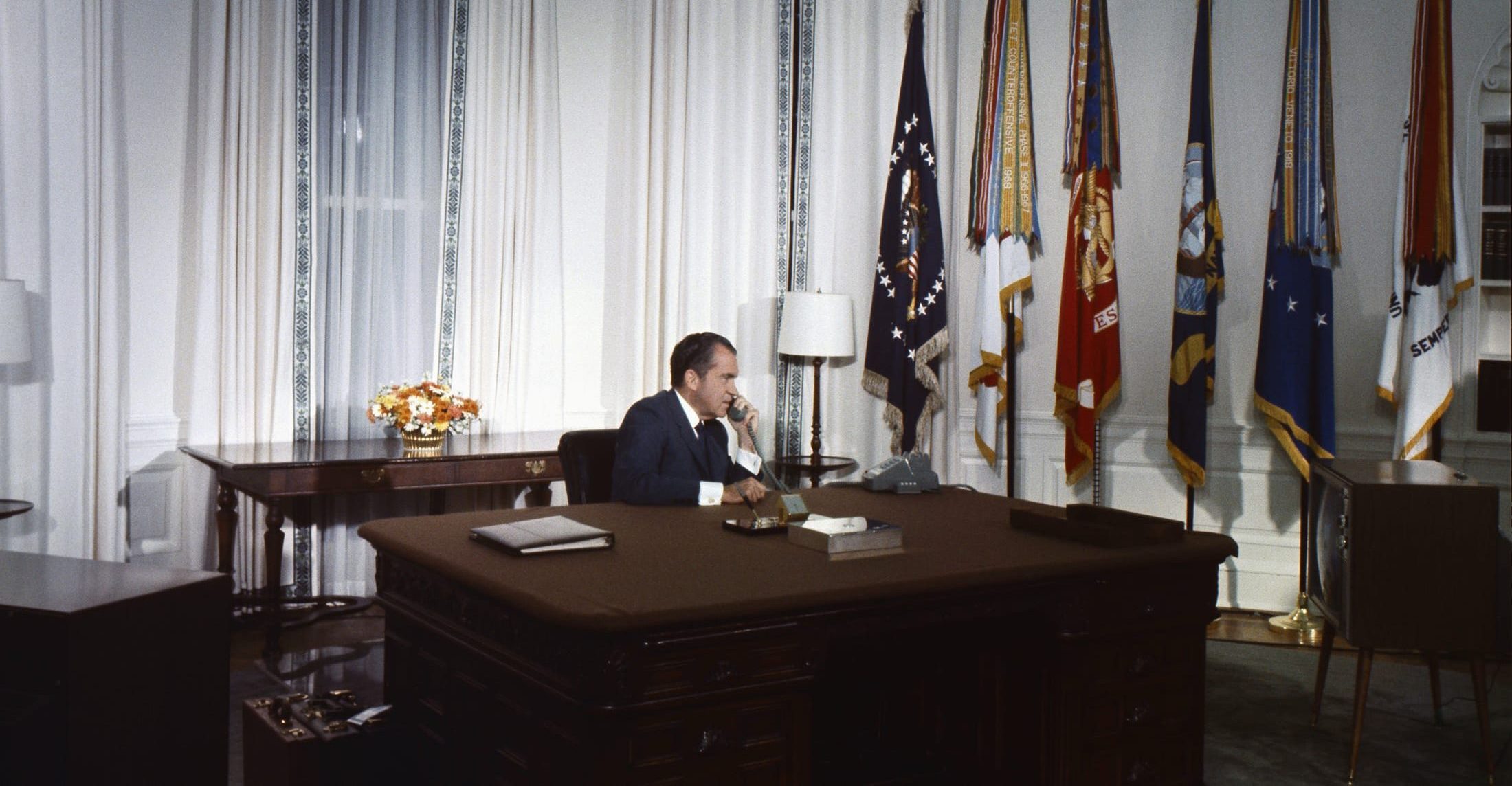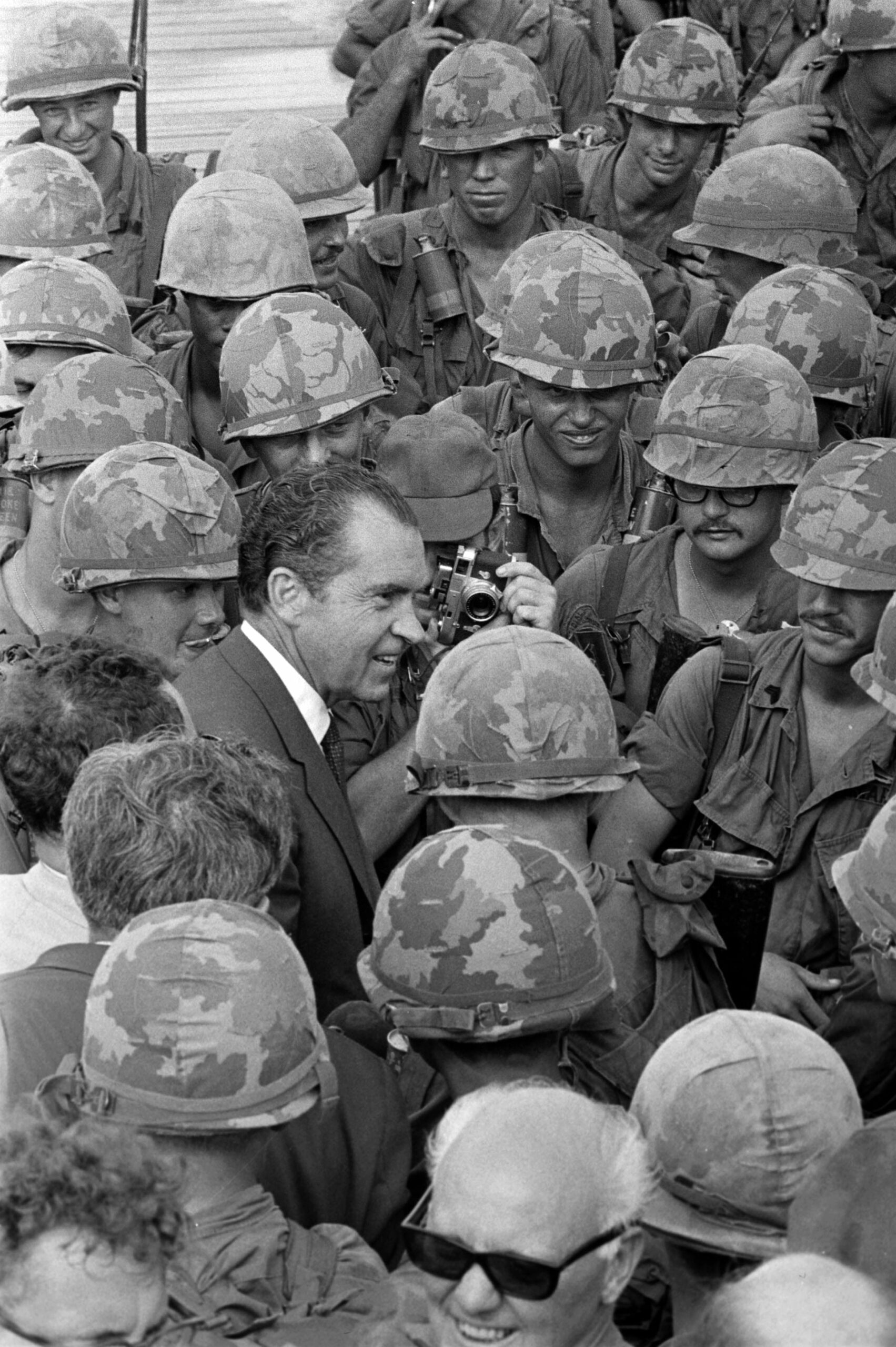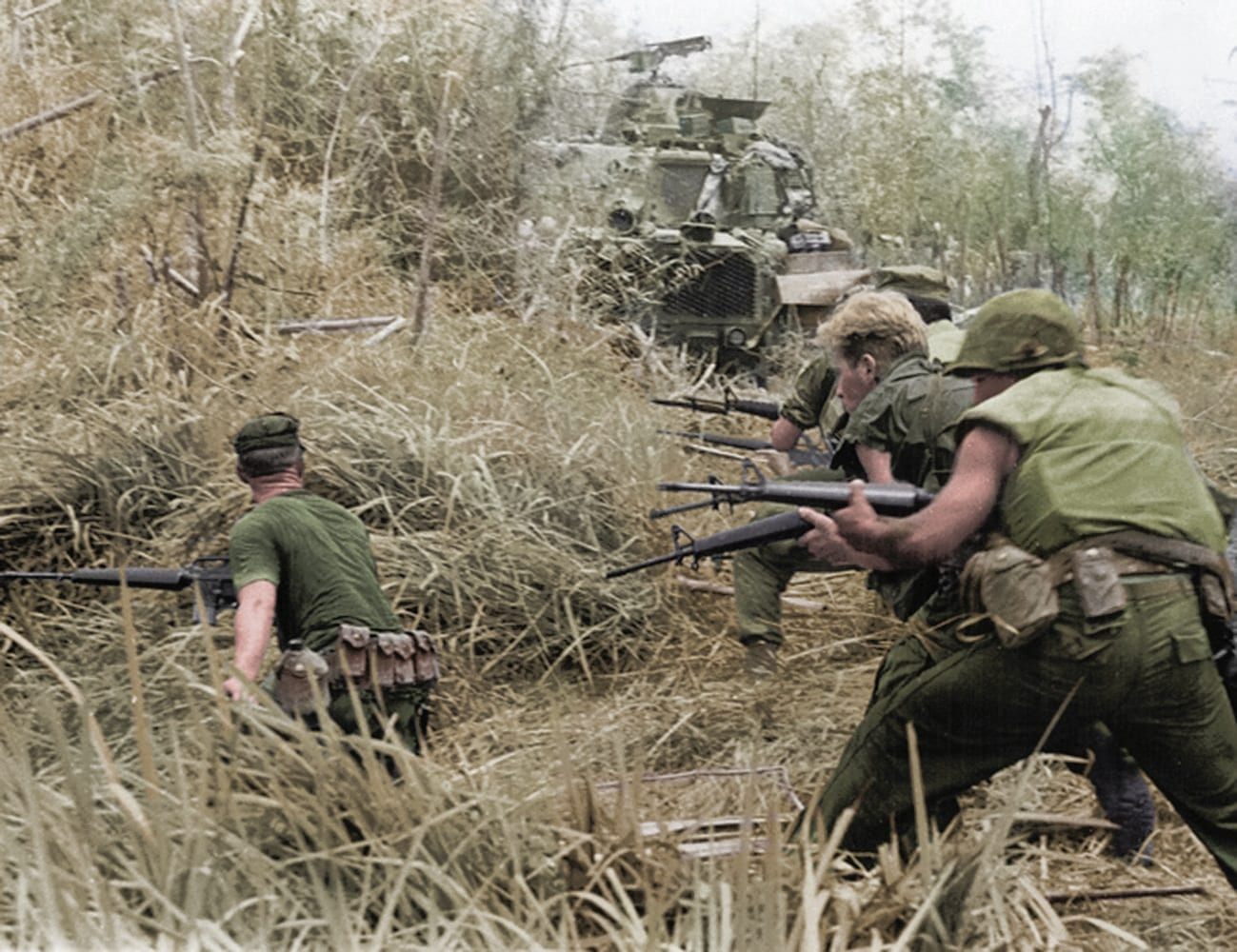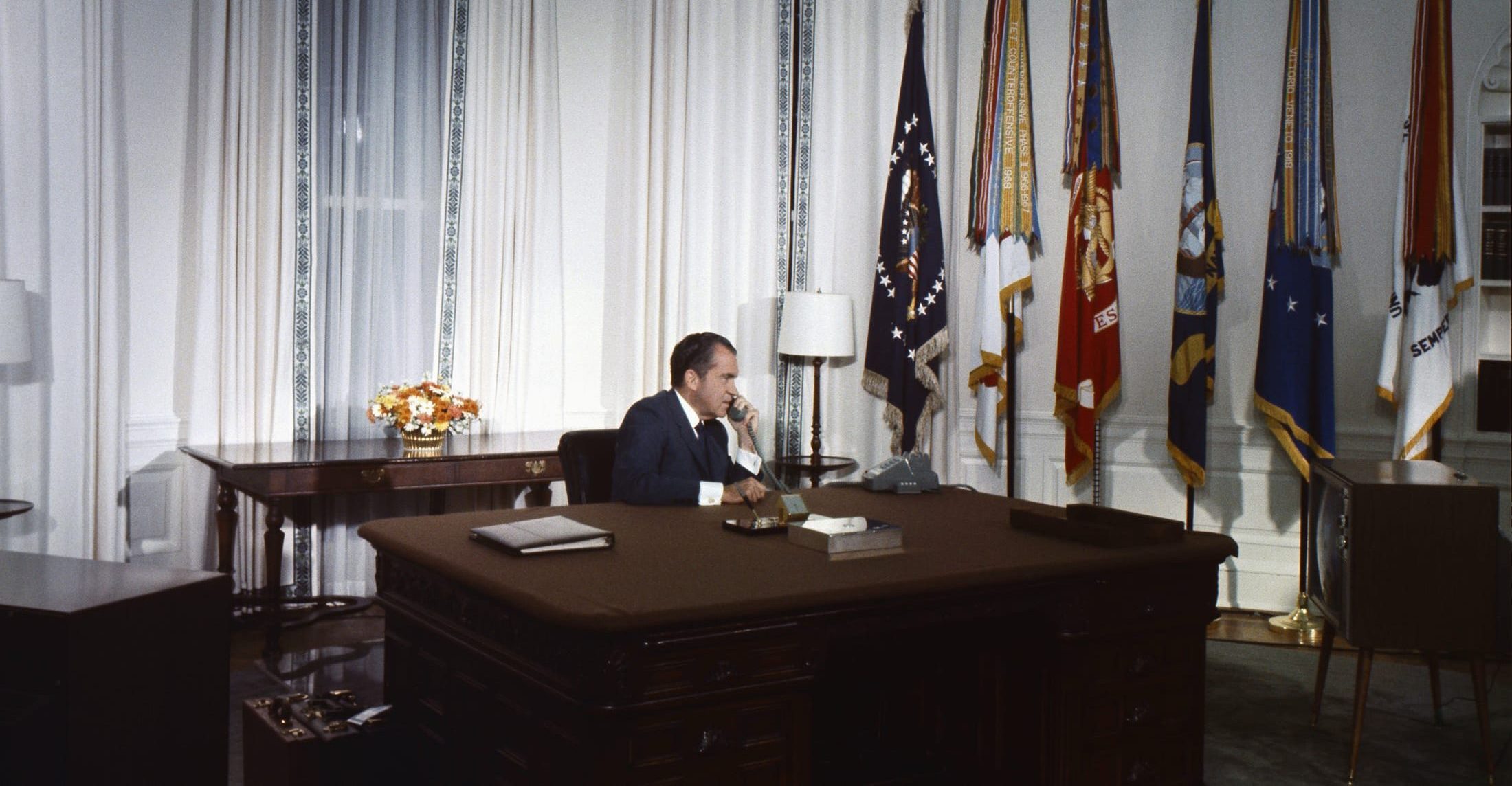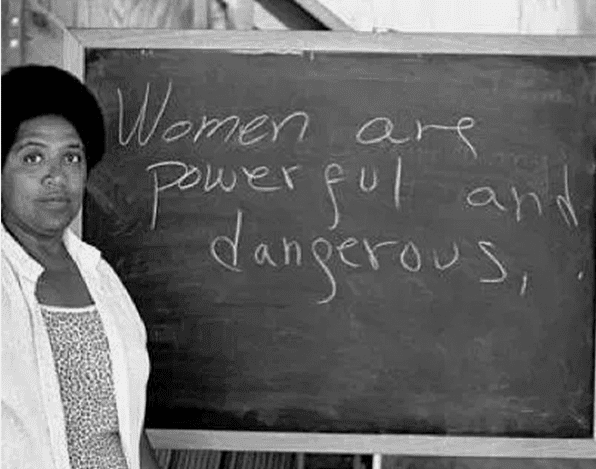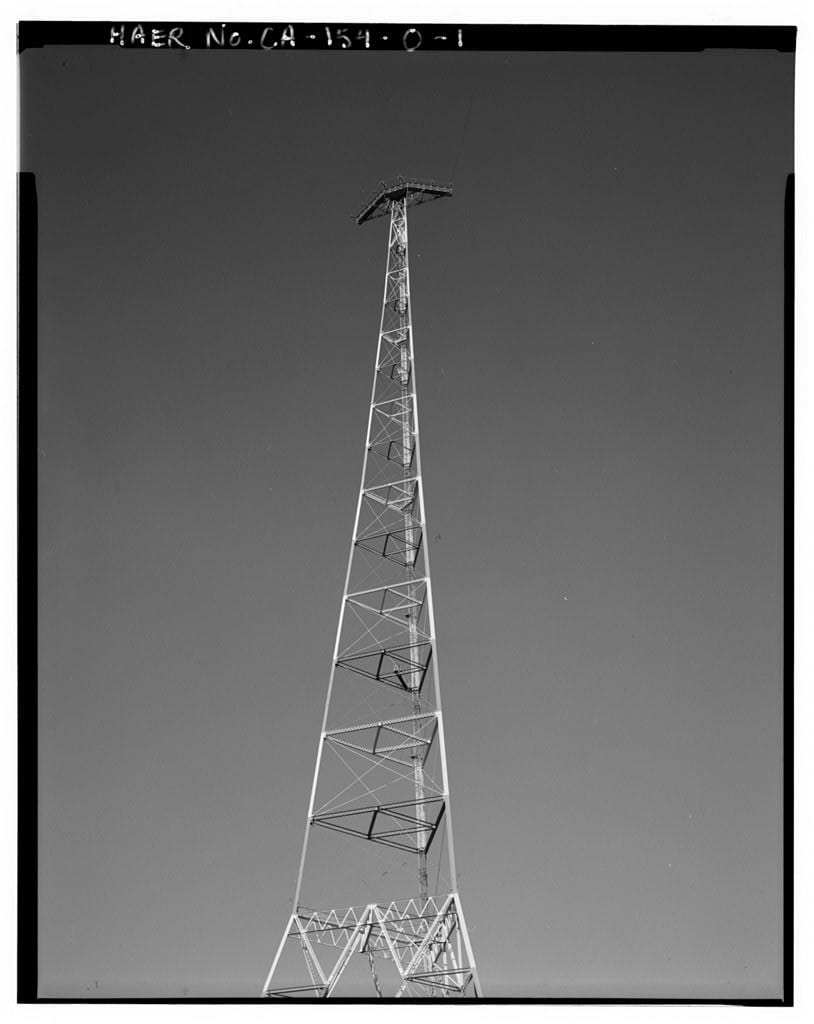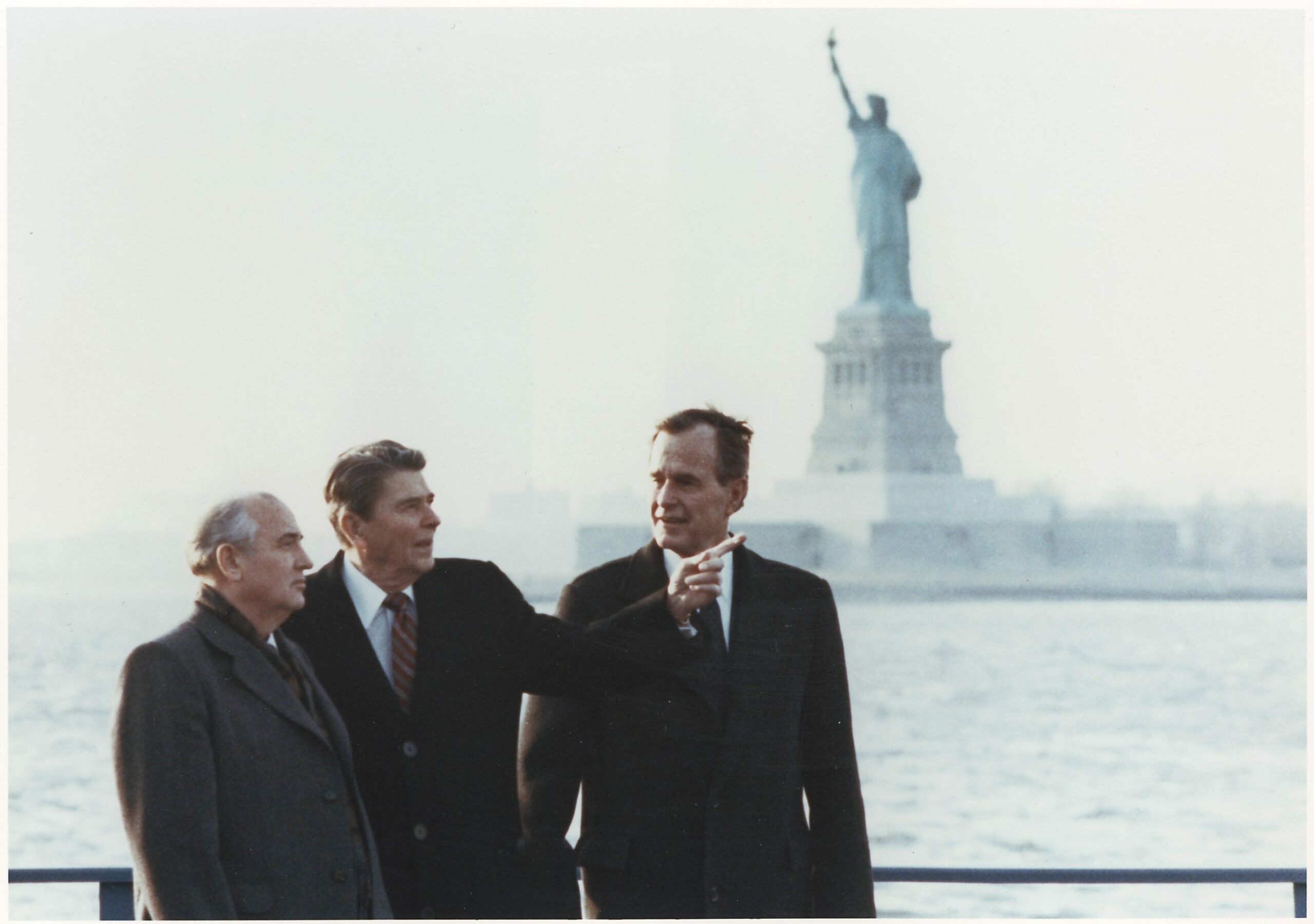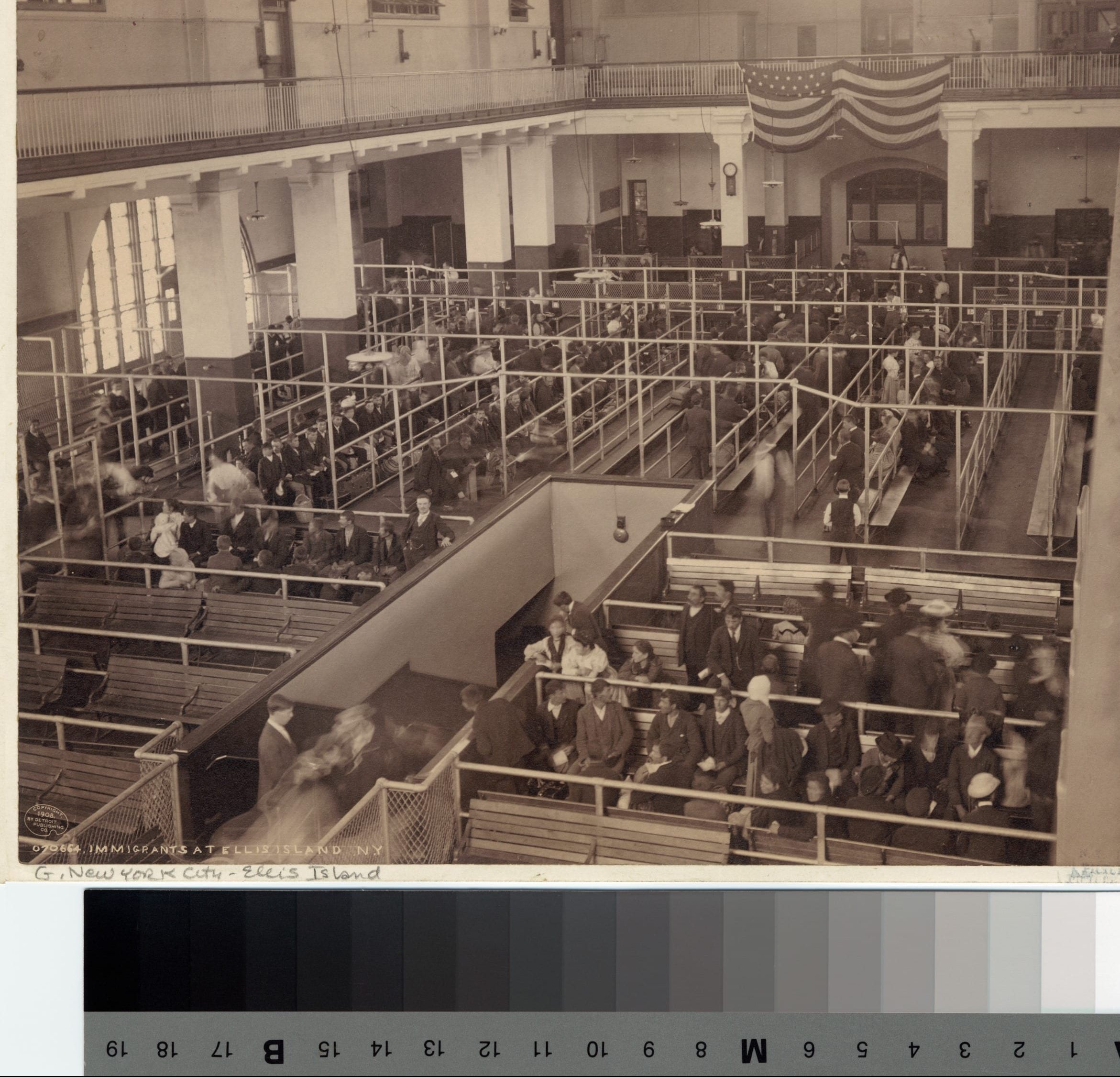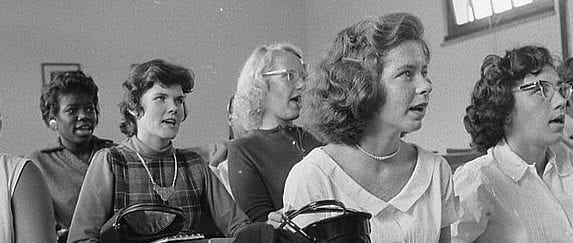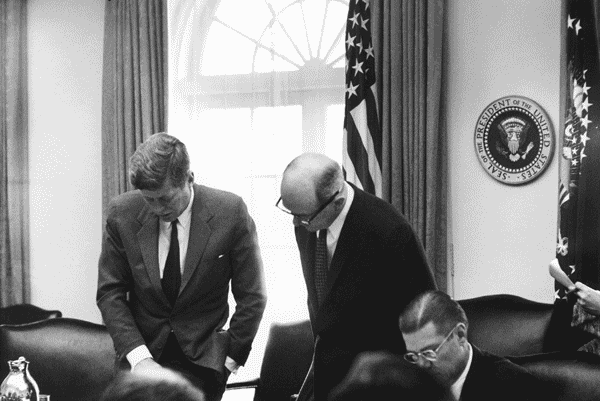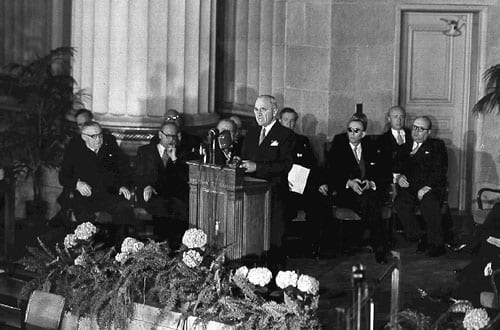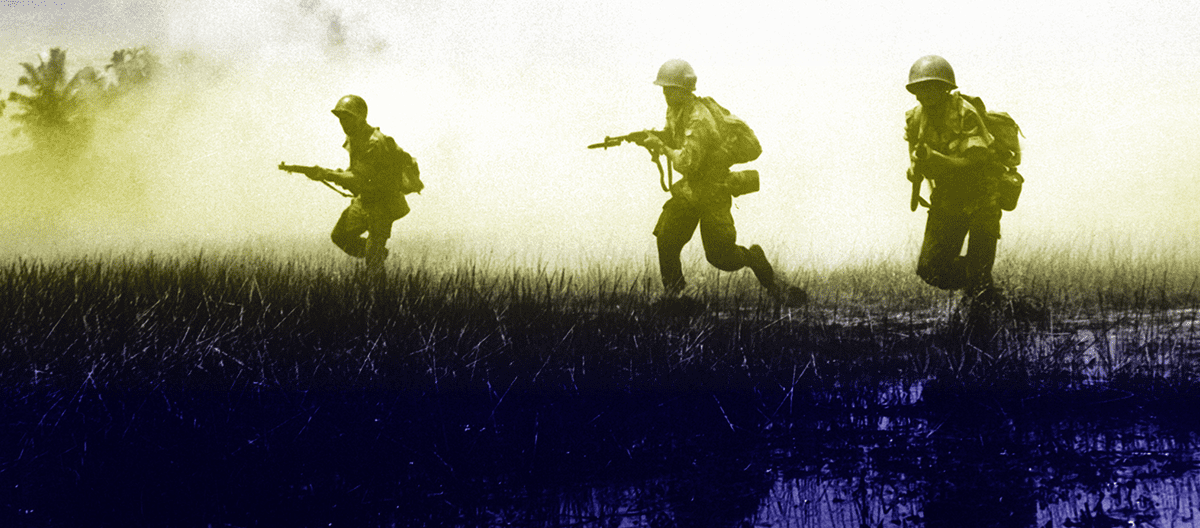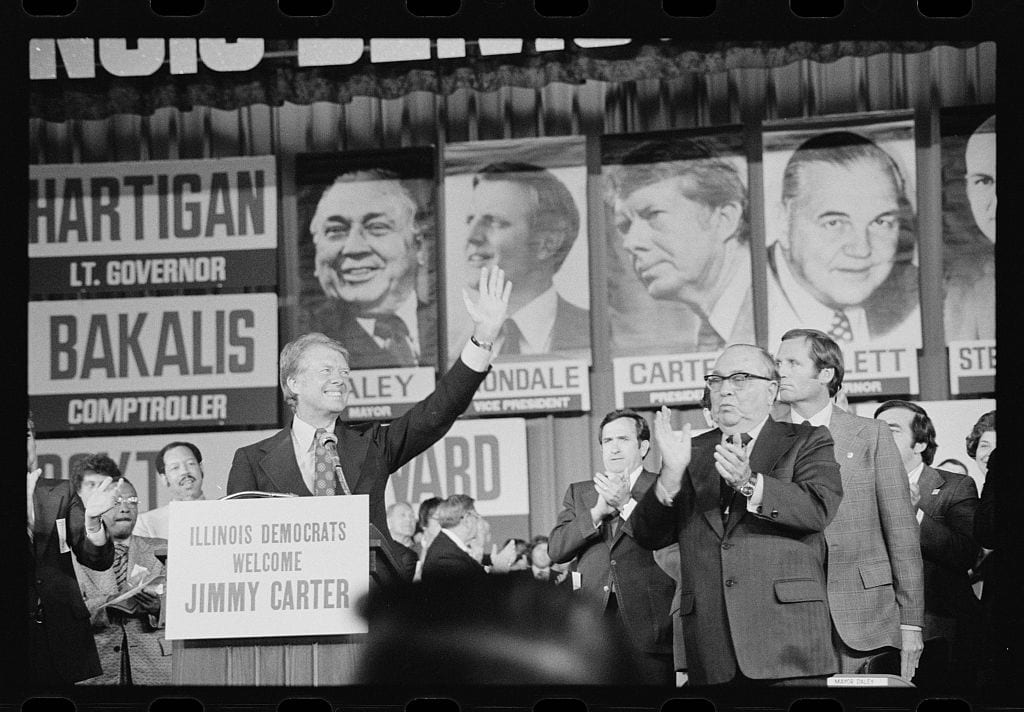
No study questions
No related resources
SITUATION IN IRAN
THE PRESIDENT. For the last 24 days our Nation’s concern has been focused on our fellow Americans being held hostage in Iran. We have welcomed some of them home to their families and their friends. But we will not rest nor deviate from our efforts until all have been freed from their imprisonment and their abuse. We hold the Government of Iran fully responsible for the well-being and the safe return of every single person.
I want the American people to understand the situation as much as possible, but there may be some questions tonight which I cannot answer fully, because of my concern for the well-being of the hostages.
First of all, I would like to say that I am proud of this great Nation, and I want to thank all Americans for their prayers, their courage, their persistence, their strong support and patience. During these past days our national will, our courage, and our maturity have all been severely tested, and history will show that the people of the United States have met every test.
In the days to come, our determination may be even more sorely tried, but we will continue to defend the security, the honor, and the freedom of Americans everywhere. This Nation will never yield to blackmail. For all Americans, our constant concern is the well-being and the safety of our fellow citizens who are being held illegally and irresponsibly hostage in Iran.
The actions of Iran have shocked the civilized world. For a government to applaud mob violence and terrorism, for a government actually to support and, in effect, participate in the taking and the holding of hostages is unprecedented in human history. This violates not only the most fundamental precepts of international law but the common ethical and religious heritage of humanity. There is no recognized religious faith on Earth which condones kidnaping. There is no recognized religious faith on Earth which condones blackmail. There is certainly no religious faith on Earth which condones the sustained abuse of innocent people.
We are deeply concerned about the inhuman and degrading conditions imposed on the hostages. From every corner of the world, nations and people have voiced their strong revulsion and condemnation of Iran and have joined us in calling for the release of the hostages.
Last night, a statement of support was released and was issued by the President of the United Nations General Assembly, the Security Council, on behalf of all of its members. We expect a further Security Council meeting on Saturday night, at which more firm and official action may be taken to help in obtaining the release of the American hostages. Any claims raised by government officials of Iran will ring hollow while they keep innocent people bound and abused and threatened.
We hope that this exercise of diplomacy and international law will bring a peaceful solution, because a peaceful solution is preferable to the other remedies available to the United States. At the same time, we pursue such a solution with grim determination. The Government of Iran must recognize the gravity of the situation, which it has itself created, and the grave consequences which will result if harm comes to any of the hostages.
I want the American people to know and I want the world to know that we will persist in our efforts, through every means available, until every single American has been freed. We must also recognize now, as we never have before, that it is our entire Nation which is vulnerable, because of our overwhelming and excessive dependence on oil from foreign countries. We have got to accept the fact that this dependence is a direct physical threat to our national security, and we must join together to fight for our Nation’s energy freedom.
We know the ways to win this war: more American energy and the more efficient use of what we have. The United States Congress is now struggling with this extremely important decision. The way to victory is long and difficult, but we have the will, and we have the human and the natural resources of our great Nation.
However hard it might be to see into the future, one thing tonight is clear: We stand together. We stand as a nation unified, a people determined to protect the life and the honor of every American. And we are determined to make America an energy-secure nation once again. It is unthinkable that we will allow ourselves to be dominated by any form of overdependence at home or any brand of terrorism abroad. We are determined that the freest nation on Earth shall protect and enhance its freedom.
I’d be glad to answer questions.
QUESTIONS
WORLD REACTION TO IRANIAN SITUATION
Q. Mr. President, the Ayatollah Khomeini said the other day—and I’m using his words—he doesn’t believe you have the guts to use military force. He puts no credibility in our military deterrent. I’m wondering, how do we get out of this mess in Iran and still retain credibility with our allies and with our adversaries overseas?
THE PRESIDENT. We have the full support of our allies, and in this particular instance, we have no adversaries overseas. There is no civilized country on Earth which has not condemned the seizure and the holding of the hostages by Iran.
It would not be advisable for me to explore publicly all of the options open to our country. As I said earlier, I’m determined to do the best I can through diplomatic means and through peaceful means to ensure the safety of our hostages and their release. Other actions which I might decide to take would come in the future, after those peaceful means have been exhausted.
But I believe that the growing condemnation of the world community on Iran will have a beneficial effect.
SHAH OF IRAN
Q. Mr. President, why did you reverse your policy and permit the Shah to come into this country when, one, medical treatment was available elsewhere; two, you had been warned by our chargé that the Americans might be endangered in Tehran; and three, the Bazargan government was so shaky that it was questionable whether he could deliver on the promise to protect our Embassy? And last of all, in view of the consequences, do you regret the decision?
THE PRESIDENT. No. The decision that I made, personally and without pressure from anyone, to carry out the principles of our country, to provide for the means of giving the Shah necessary medical assistance to save his life, was proper. At the same time, we notified the Government of Iran. We were assured by the Prime Minister and the Foreign Minister that our Embassy would be protected, and it was protected for several days, in spite of threats from outside.
Then peremptorily, after Khomeini made an aggravating speech to the crowds in the street and withdrew protection from the Embassy, it was attacked successfully. The Embassy was protected by our people for the length of time possible without help from the host government. No embassy on Earth is a fortress that can withstand constant attacks by a mob, unless a host government comes to the rescue of the people within the embassy.
But I took the right decision. I have no regrets about it nor apologies to make, because it did help to save a man’s life, and it was compatible with the principles of our country.
EFFECT ON U.S. POLITICAL ACTIVITIES
Q. Mr. President, we appear to be in a rather dangerous period of international tension and volatility, especially in the Islamic world, and it comes at a time when we’re about to embark on our quadrennial election campaign, with all that that will bring. Have you given any thought to whether, following examples of other national emergencies, it may be wise to try to mute the political fallout of this by trying to bring opponents in and outside of your party into some kind of emergency coalition for this purpose?
THE PRESIDENT. We have attempted to keep the political leaders in our Nation informed, both publicly and through other channels. We have given frequent briefings, for instance, on the Hill, both to the Members of the Senate and to the House. We have encouraged all of those who have become announced candidates for President to restrain their comments, which might be misconstrued overseas, and to have a maximum degree of harmony among those who might be spokesmen for our country.
I myself, in order to stay close to the scene here, where constantly changing events could be handled by me as President, have eliminated the major portion of political-oriented activities.
I don’t think the identity of the Islamic world is a factor. We have the deepest respect and reverence for Islam and for all those who share the Moslem faith. I might say that, so far as I know, all the Islamic nations have joined us in condemning the activities and the actions of the Government of Iran. So, I don’t think religious divisions are a factor here at all.
But I will have to continue to restrict my own political activities and call on those who might be opposing me in the future for President to support my position as ,President and to provide unity for our country and for our Nation in the eyes of those who might be looking for some sign of weakness or division in order to perpetuate their abuse of our hostages.
SECURITY FOR EMBASSIES
Q. What can the U.S. do now, what can it do to prevent future incidents of the nature of Iran? How can you satisfy the public demand to end such embarrassment?
THE PRESIDENT. Well, this is an unprecedented and unique occurrence. Down through history, we have had times when some of our people were captured by terrorists or who were abused, and there have obviously been instances of international kidnaping which occurred for the discomfiture of a people or a government. So far as I know, this is the first time that such an activity has been encouraged by and supported by the government itself, and I don’t anticipate this kind of thing recurring.
We have taken steps already, in view of the disturbances in the Middle East and the Persian Gulf region, to guard our people more closely, to provide them with higher degree of security, and to make arrangements with the host governments to provide assistance, if it’s needed, in the fastest possible way.
Many other nations have reduced severely the number of persons overseas. I think one of the points that should be made is that a year ago, we had 70,000 Americans in Iran—70,000. There were literally thousands of people who were killed in the Iranian revolution, from all nations. We were able to extract Americans from Iran safely. It was a superb demonstration of cooperation and good conduct on the part of the State Department and other American officials.
So, there will be disturbances in the future, but I think we are well protected as we possibly can be, without withdrawing into a shell, from protecting American interests in nations overseas.
My own experience, so far, has been that the leaders of nations have recommitted themselves to provide security for embassies of all countries. I think we’ve learned a lesson from this instance. But, because it is so unique, in the high degree of irresponsibility of the Iranian Government leaders, I don’t believe that we’ll see another reoccurrence of it any time soon.
HENRY KISSINGER
Q. Mr. President, former Secretary of State Kissinger has criticized your administration’s handling of the situation in Iran. He has suggested that it came about because, partly because of the perceived weakness in American foreign policy, and that it has further damaged America’s image as a result.
How do you respond?
THE PRESIDENT. I would rather not respond. There’s no reason for me to get into a public debate at this time with former Secretary Kissinger about who is or who is not responsible for the events that took place in Iran.
Obviously, what has occurred could not have been predicted. And for 30 years, our country has had a relationship with a fairly stable government there. The changes took place very rapidly. So far as I know, no one on Earth predicted them.
And I think it’s not becoming at this moment and not conducive to better American understanding to get involved in answering allegations that I or someone else may have been culpable and may have caused a further aggravation of a very difficult situation.
Q. Mr. President, just one followup. What role did the former Secretary play in your decision to permit the Shah into the country?
THE PRESIDENT. None. I did not hear at all from the Secretary, former Secretary Kissinger, nor did he contact Secretary Vance at any time during the days when we were deciding that the Shah should come into the United States for medical care to save his life. In previous weeks and months since the Shah was deposed, Secretary Kissinger and many others let it be known that they thought that we should provide a haven for the Shah. But Secretary Kissinger played no role in my decision to permit the Shah to come in for medical treatment.
SHAH OF IRAN
Q. Mr. President, speaking of the Shah, if he is well enough to travel, would you like him to leave the country?
THE PRESIDENT. That’s a decision to be made by the Shah and by his medical advisers. When he decided to come to our country, with my permission, I was informed then, and I have been informed since, that as soon as his medical treatment was successfully completed, that his intention was to leave. And I have not encouraged him to leave. He was free to come here for medical treatment, and he will leave on his own volition.
U.S. RELATIONS WITH ISLAMIC NATIONS
Q. Mr. President, yes, I would like to follow up Mr. Schorr’s [Daniel Schorr, Des Moines Register] question. The consequences of the crisis in Iran is drifting the United States into almost a cold war with the Islamic countries. Watching TV news for 25 days, Americans soon will believe the whole Moslem world is hating them. Moreover, they are not told that the Shiites are a very minor minority among the population of the Islamic world, because the most majority is Sunni. Don’t you think you get any help from any Islamic country, and what will your policy be towards the Islamic countries under these circumstances?
THE PRESIDENT. Well, the premise of your question is completely wrong. We’re not approaching any sort of cold war with the Islamic countries. So far as I know, every Islamic country has condemned Iran for its capture of our hostages, and has been very supportive. This includes Moslem nations which, in the past, have not been close friends of ours—Iraq, Libya, and others. So, I don’t see this as confrontation at all between our Nation and the Islamic world.
It’s certainly not part of the Islamic faith to condone, as I said earlier, blackmail or the persecution or harm of innocent people or kidnaping or terrorism.
So, I think that we have a very good relationship with the people and the governments of the Islamic world, and I don’t think it’s deteriorated in this instance. In some ways, we’ve been drawn closer to these people, because they see what has occurred in Iran as something of a disgrace for their own religious faith, and they don’t see this as typical of what Moslems believe.
I might add, also, that this is not typical of the Shiite faith, either. It’s the misguided actions of a few people in Iran who are burning with hatred and a desire for revenge, completely contrary to the teachings of the Moslem faith.
U.S. REACTION TO IRANIAN SITUATION
Q. Mr. President, there’s a feeling of hostility throughout the country toward Iran, because of the hostages. Senator Long said that the taking of our Embassy in Iran, in his words, is an act of war. There are rumors, since denied, that our Navy has been called up for service. I ask you, as our Commander in Chief, is war possible, is war thinkable?
THE PRESIDENT. It would be a mistake for the people of our country to have aroused within them hatred toward anyone; not against the people of Iran, and certainly not against Iranians who may be in our country as our guests. We certainly do not want to be guilty of the same violation of human decency and basic human principles that have proven so embarrassing to many of the Iranian citizens themselves.
We obviously prefer to see our hostages protected and released completely through peaceful means. And that’s my deepest commitment, and that will be my goal. The United States has other options available to it, which will be considered, depending upon the circumstances. But I think it would not be well-advised for me to speak of those specifically tonight.
IRANIAN STUDENTS IN THE UNITED STATES
Q. Mr. President, we have had 55,000 Iranian students in this country. We’ve been very good to them, very hospitable. Even the new Finance Minister of Saudi Arabia was a student who once demonstrated in Washington against law and order. Shouldn’t we be very careful in letting any of these students come in here? Shouldn’t we screen them in the future and make them agree that they will not demonstrate?
THE PRESIDENT. Well, it’s very difficult for an Iranian citizen or a student to get a visa at the American Embassy in Iran at this time [Laughter]. And I think the influx of Iranians to our country now would be minimal.
I’m determined to enforce the law about Iranian students. Some of them have violated the law. They are now being screened; they are being assessed in their commitment and the legality of their presence here. We have already finished this procedure with more than 22,000. About 17,000 have proven to be here completely legally and are indeed fulltime students. Among the other 5,000, about several hundred have already departed; others are now having to prove that, contrary to the earliest evidence, they do indeed have a right to be in our country. If they are here illegally, they will be expelled.
There is one exception to that rule: If a citizen of Iran can prove that if he or she returned to Iran that they would be executed or abused because of their political beliefs, they can seek asylum here. And if that asylum, in our judgment, is justified, we will provide it for them.
But this procedure is going forward in accordance with American law, in accordance with American fairness, in accordance with the full principles of the United States Constitution.
DEADLINE FOR RELEASING AMERICAN
HOSTAGES
Q. Mr. President, can this crisis go on indefinitely, or ought the Ayatollah Khomeini understand that at some point the American people may demand and other nations may expect that you move forward to resolve it by whatever means you find necessary?
THE PRESIDENT. It would not be possible or even advisable for me to set a deadline about when or if I would take certain action in the future. This is an ever-present consideration on my mind. I’m carrying out all of the duties that normally fall on a President’s shoulder, which are adequate, but I never forget one moment that I’m awake about the hostages whose lives and whose safety depend on me. And I am pursuing every possible avenue to have the hostages released.
Any excessive threats or any excessive belief among the Iranians that they will be severely damaged by military action, as long as these negotiations are proceeding and as long as legalities can be followed, might cause the death of the hostages, which we are committed to avoid. So, that’s one of the questions that I cannot answer: to set down a certain deadline beyond which we would take extra action, that might result in the harm or the death of the hostages.
We are proceeding, I guarantee you, in every possible way, every possible moment, to get the hostages freed and, at the same time, protect the honor and the integrity and the basic principles of our country. That’s all I can do, but I am doing it to the best of my ability, and I believe we will be successful.
U.S. STRENGTH ABROAD
Q. Mr. President, many Americans view the Iranian situation as one in a succession of events that proves that this country’s power is declining. How can you assure Americans tonight that our power is not declining abroad, and how are you reassessing priorities for the eighties in terms of foreign policy?
THE PRESIDENT. The United States has neither the ability nor the will to dominate the world, to interfere in the internal affairs of other nations, to impose our will on other people whom we desire to be free, to make their own decisions. This is not part of the commitment of the United States.
Our country is the strongest on Earth. We’re the strongest militarily, politically, economically, and I think we’re the strongest morally and ethically. Our country has made great strides, even since I’ve been in office. I’ve tried to correct some of the defects that did exist. We have strengthened the military alliances of our country, for instance. NATO now has a new spirit, a new confidence, a new cohesion, improving its military capabilities, much more able to withstand any threat from the east, from the Soviet Union or the Warsaw Pact, than it was before.
We’ve espoused again the principles that unite Americans and make us admired throughout the world, raising the banner of human rights. We’re going to keep it high. We have opened up avenues of communication, understanding, trade, with people that formerly were our enemies or excluded us—several nations in Africa, the vast people and the vast country of the People’s Republic of China. In doing so, we’ve not alienated any of our previous friends.
I think our country is strong within itself. There is not an embarrassment now about our Government, which did exist in a few instances in years gone by. So, I don’t see at all that our country has become weak. We are strong, and we are getting stronger, not weaker. But if anybody thinks that we can dominate other people with our strength, military or political strength or economic strength, they are wrong. That’s not the purpose of our country.
Our inner strength, our confidence in ourselves, I think, is completely adequate. And I believe the unity that the American people have shown in this instance, their patience, is not at all a sign of weakness. It is a sign of sure strength.
INVESTIGATION OF THE SHAH
Q. Mr. President, serious charges have been placed against the Shah concerning the repression of his own people and the misappropriation of his nation’s funds. Is there an appropriate vehicle to investigate those charges, and do you foresee a time when you would direct your administration to assist in that investigation?
THE PRESIDENT. I don’t know of any international forum within which charges have ever been brought against a deposed leader who has left his country. There have been instances of changing governments down through the centuries in history, and I don’t know of any instance where such a leader, who left his country after his government fell, has been tried in an international court or in an international forum.
This is a matter that can be pursued. It should be pursued under international law, and if there is a claim against the Shah’s financial holdings, there is nothing to prevent other parties from going into the courts, in accordance with the law of a nation or internationally, and seeking a redress of grievances which they claim.
But as I said earlier, I don’t think there’s any forum that will listen to the Iranians make any sort of claim, justified or not, as long as they hold against their will and abuse the hostages, in complete contravention to every international law and every precept or every commitment or principle of humankind.
BROOKS JACKSON [Associated Press]. Thank you, Mr. President.
THE PRESIDENT. Thank you very much.

Conversation-based seminars for collegial PD, one-day and multi-day seminars, graduate credit seminars (MA degree), online and in-person.

